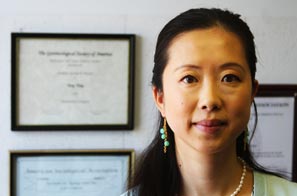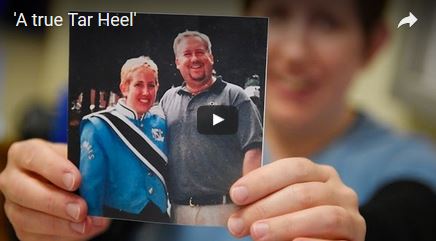The University of North Carolina at Chapel Hill Center for European Studies, one of 10 centers nationwide to have received the designation of EU Center of Excellence from the European Union, has been awarded funding of 424,855 euros (approximately $570,000) by the European Union for research and activities from 2011 to 2014.
“The grant to UNC comes in response to the center’s well-established and growing ability to highlight, research and strengthen transatlantic relations,” says Ron Strauss, executive vice provost and chief international officer at UNC.
Strauss notes that the grant application process is very competitive, and that the support reaffirms the center’s value to the university and region. “The Center for European Studies provides important support for scholarship and cultural programming on critical global issues,” he says, noting that the center also offers students a number of academic opportunities.
In addition to its designation as an EU Center of Excellence, the UNC Center for European Studies has been designated by the U.S. Department of Education as a National Resource Center in West European studies. The center offers an undergraduate degree program – the EURO Major – in contemporary European studies and a graduate program – the TransAtlantic Masters Program – in European Union politics, policy and society and transatlantic relations.
UNC was also chosen to serve as Network and Outreach Coordinator for all U.S. centers, with the goal of promoting cooperation and sharing best practices among the network. The center will maintain the network website, providing access to research and teaching materials produced by all U.S. centers.
“We’re pleased to once again be named as the network and outreach coordinator for the centers,” says John Stephens, Gerhard E. Lensk Jr. Distinguished Professor of Political Science and Sociology and director of the UNC Center for European Studies. “The distinction reflects the University’s faculty expertise and sponsorship of innovative research and publications on contemporary Europe, and it’s an honor for the center to serve in this role.”
The network of 10 EU Centers of Excellence, all housed at major research universities, promotes the study of the European Union and EU-US relations through teaching programs, scholarly research and outreach activities.




